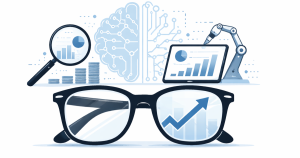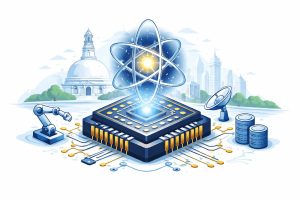As artificial intelligence continues to advance, concerns about job displacement and human obsolescence have become a topic of heated debate. However, rather than fearing the extinction of jobs, it is important to recognize the transformative potential that AI, exemplified by ChatGPT, holds for various industries. In this article, we explore how ChatGPT is reshaping jobs and fostering new opportunities in the age of AI.
- Augmenting Human Capabilities: ChatGPT, a sophisticated language model powered by AI, is designed to assist humans rather than replace them. Its ability to process vast amounts of information, understand context, and generate relevant responses enables professionals to enhance their productivity and decision-making. From customer support to content creation, ChatGPT augments human capabilities by providing valuable insights and automating routine tasks.
- Enhancing Customer Service: One of the significant areas where ChatGPT is making an impact is in customer service. By leveraging natural language processing and machine learning, ChatGPT can provide instant, personalized support to customers, addressing their queries and concerns efficiently. This frees up human agents to focus on more complex and nuanced customer interactions, leading to improved customer satisfaction and loyalty.
- Streamlining Content Generation: Content creation is another field benefiting from the integration of ChatGPT. With its language generation capabilities, ChatGPT assists writers, journalists, and marketers in ideation, content research, and even generating initial drafts. By automating repetitive tasks, ChatGPT allows professionals to allocate their time and expertise to higher-level creative and strategic aspects of content creation.
- Enabling Smarter Decision-Making: In industries where data analysis is crucial, ChatGPT plays a significant role in synthesizing and interpreting complex information. By analyzing vast datasets and providing meaningful insights, ChatGPT empowers professionals to make data-driven decisions efficiently. This not only improves overall decision-making but also helps organizations remain competitive in an increasingly data-centric world.
- Fostering Innovation and Creativity: With the assistance of ChatGPT, professionals have more opportunities to explore innovative solutions and nurture their creativity. By handling repetitive and time-consuming tasks, ChatGPT frees up valuable cognitive resources, allowing individuals to focus on problem-solving, innovation, and exploring new frontiers. This symbiotic collaboration between humans and AI fosters a culture of innovation and pushes the boundaries of what is possible.
- Upskilling and Reskilling Opportunities: The integration of AI technologies like ChatGPT creates a demand for new skills and expertise. As certain tasks become automated, professionals have the opportunity to upskill or reskill themselves to thrive in the evolving job market. Acquiring skills related to AI, data analysis, and human-AI collaboration positions individuals for emerging job roles that require a deep understanding of AI technologies.
- Ethical Considerations and Human Oversight: While acknowledging the positive impacts of ChatGPT, it is crucial to address ethical concerns and ensure human oversight. Organizations utilizing AI technologies must prioritize transparency, accountability, and fairness. This involves robust guidelines, regular audits, and continuous monitoring to prevent biases, address ethical dilemmas, and uphold human values in decision-making processes.
In conclusion, the rise of ChatGPT and AI technologies marks an era of evolution, not extinction, for jobs. Rather than replacing humans, ChatGPT empowers professionals to excel in their respective fields by augmenting their capabilities, streamlining processes, and fostering creativity. By embracing this collaborative partnership between humans and AI, we can unlock new opportunities, drive innovation, and shape a future where AI complements and enhances human potential.
Last Updated on: Tuesday, May 16, 2023 6:59 am by Anu Priya | Published by: Anu Priya on Tuesday, May 16, 2023 6:59 am | News Categories: GENERAL, Tech


